Many National Assembly deputies have expressed their agreement with the provision prohibiting the act of "agreeing to buy and sell human beings while they are still fetuses" in the draft Law on Prevention and Combat of Human Trafficking (amended).

Continuing the 8th Session Program, on the afternoon of October 22, at the National Assembly House, under the direction of Vice Chairman of the National Assembly Nguyen Khac Dinh, the National Assembly listened to Member of the National Assembly Standing Committee, Chairwoman of the National Assembly's Judicial Committee Le Thi Nga present a Report explaining the reception and revision of the draft Law on Prevention and Combat of Human Trafficking (amended).
Expanding the concept to effectively handle human trafficking crimes
Chairwoman of the National Assembly's Judiciary Committee Le Thi Nga said that the National Assembly Standing Committee found that the concept of "human trafficking" The draft Basic Law ensures the unity and uniformity of the legal system, responds to practical requirements in the fight against human trafficking, and ensures compliance with international treaties on human trafficking prevention and control to which Vietnam is a member.
In particular, the concept of “human trafficking” in the draft Law has expanded some contents compared to the Penal Code and current laws, including the content that people from 16 to under 18 years old are considered human trafficking only by the elements of behavior and purpose, and thus, they are also protected as people under 16 years old. This provision is also consistent with the United Nations Convention on the Rights of the Child.

The Standing Committee of the National Assembly believes that the concept of “human trafficking” being defined more broadly than that of the Penal Code will serve as a basis for improving criminal law and criminal procedure to more effectively handle this type of crime and further raise people’s awareness of preventing human trafficking. At the same time, to ensure strictness and enhance prevention, the concept of “human trafficking” in the draft Law also has broader content than that of some international treaties, such as: adding other inhumane purposes and other means.
Some opinions suggest adding the act of "agreeing to buy and sell human beings while they are still fetuses" to the concept of human trafficking in Clause 1, Article 2 as a basis for effectively fighting and preventing the situation of agreements to buy and sell human beings while they are still fetuses.
The Standing Committee of the National Assembly has found that in recent years, the situation of buying and selling fetuses for the purpose of buying and selling children after they are born is a worrying reality. This agreement to buy and sell is essentially a premise for human trafficking (trafficking in people from the fetal stage), but the handling of this behavior has not been regulated by law. In response to the opinions of National Assembly Deputies, Clause 2, Article 3 of the draft Law stipulates the prohibited act of "agreeing to buy and sell people from the fetal stage".

Regarding the concept of victim, a person in the process of being identified as a victim (Clause 6 and Clause 7, Article 2), the Standing Committee of the National Assembly found that if the regulation is in the direction that a victim is any person who is the subject of human trafficking, it will be very difficult to prove in practice and will not ensure feasibility.
Therefore, the identification of victims must be based on specific criteria, such as being abused by human trafficking and identified by competent authorities. At the same time, the draft Law also provides broader provisions than the requirements of international treaties in supporting people in the process of being identified as victims. Therefore, it is proposed to keep the provisions as in the draft Law.
Chairwoman of the Judicial Committee Le Thi Nga also said that the draft Law after being received, revised and completed to be submitted to the National Assembly for consideration at this Session consists of 8 chapters and 65 articles (1 article less than the draft Law submitted to the National Assembly, including removing articles 34, 56, 58, 59; adding articles 21, 40 and 64; amending 63 articles, keeping 2 articles). |
Agree with the proposal to ban human trafficking agreements from the fetus stage
After listening to the Report, many delegates expressed their agreement with the regulations related to the proposal to ban human trafficking agreements from the fetal stage.
Delegate Thach Phuoc Binh ( Tra Vinh ) noted that the drafting and reviewing agency has absorbed and supplemented many important contents that were commented on by delegates at the 7th session, such as clarifying the act of agreeing to buy and sell people when they are still fetuses...

Meanwhile, delegate Thai Thi An Chung (Nghe An) also noted that the draft has stipulated a strict prohibition on the sale of children in the womb. The delegate said that this provision will contribute to better protecting children's rights.
According to the delegate, criminals often seek out women and ethnic minorities in remote areas and then lure them abroad to give birth, sell them for money or exchange them for other objects. According to delegate Thai Thi An Chung, this agreement is essentially a premise for child trafficking. However, handling it is difficult because the current Penal Code does not have any relevant regulations.
Therefore, in order to create a legal basis for crime prevention and protection of children's rights, it is necessary to supplement regulations prohibiting the act of agreeing to buy and sell human beings from the fetus stage, meeting practical requirements.
“This regulation will contribute to the fight against and prevention of crimes of trafficking of children from the time they are still fetuses in the womb and is consistent with the provisions of international conventions on children's rights, which is to protect children from the time they are still in the womb,” the delegate emphasized.
However, delegate Chung also said that this provision is still not enough because the above-mentioned buying and selling behavior can also lead to the use of tissues, organs, etc. and many other inhumane purposes. Therefore, the delegate proposed to stipulate more clearly the prohibition of "buying and selling human fetuses", and at the same time supplement relevant laws (such as criminal law).

Regarding the procedure for receiving and verifying the person reporting as a victim, delegate Thai Thi An Chung said that the draft combining the procedure for reporting when the person reporting is a victim with the person reporting as a representative of the victim is unreasonable.
In particular, the delegate also proposed to add the subject of adjustment to victims of trafficking abroad who are Vietnamese but do not have nationality due to insufficient documents...
"Currently, the draft only stipulates foreigners and Vietnamese people, leaving out people without nationality," delegate Thai Thi An Chung wondered.
At the discussion session, some opinions also suggested considering regulations on victims, budget allocation for areas with serious and complicated human trafficking situations and border areas...
Draft Law on Prevention and Combat of Human Trafficking, amended will continue to edit, perfect, and ensure quality for approval at this 8th Session.
Source




![[Photo] Vietnamese shipbuilding with the aspiration to reach out to the ocean](https://vphoto.vietnam.vn/thumb/1200x675/vietnam/resource/IMAGE/2025/5/20/24ecf0ba837b4c2a8b73853b45e40aa7)

![[Photo] Award ceremony for works on studying and following President Ho Chi Minh](https://vphoto.vietnam.vn/thumb/1200x675/vietnam/resource/IMAGE/2025/5/20/a08ce9374fa544c292cca22d4424e6c0)

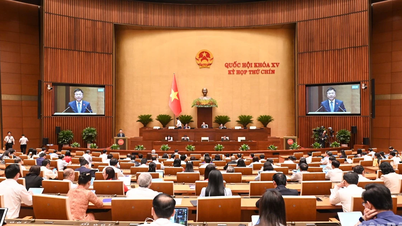

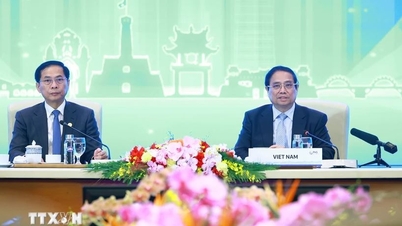



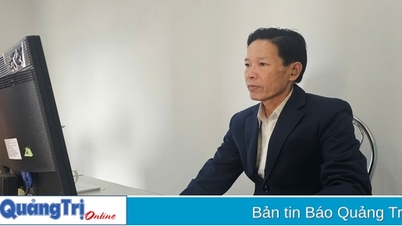
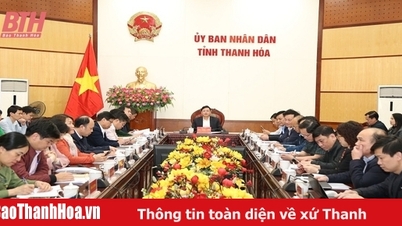
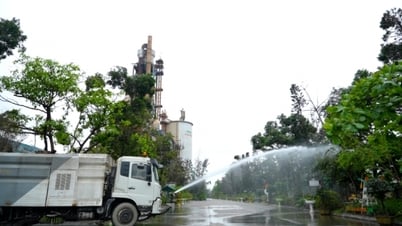

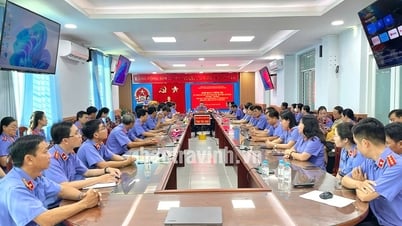


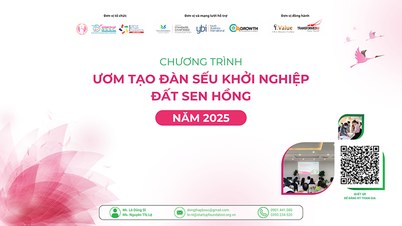
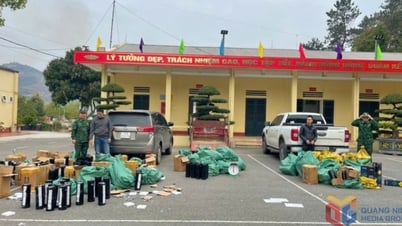




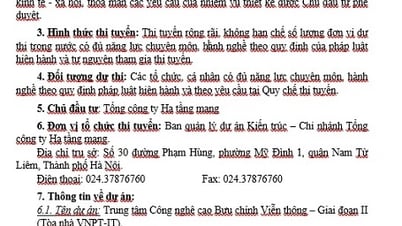




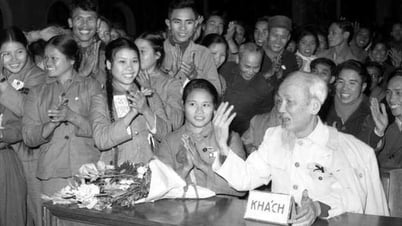































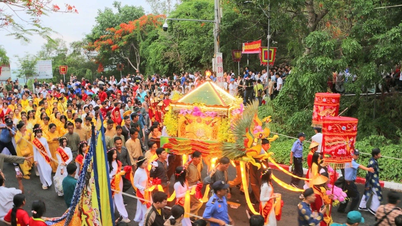




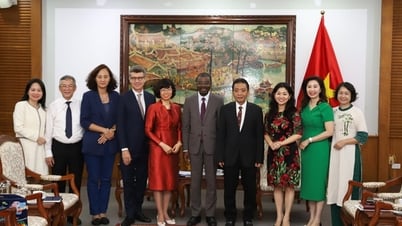








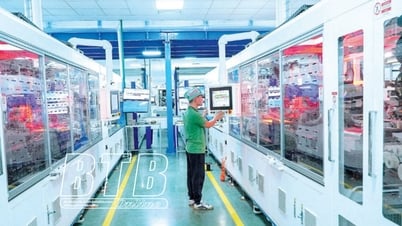

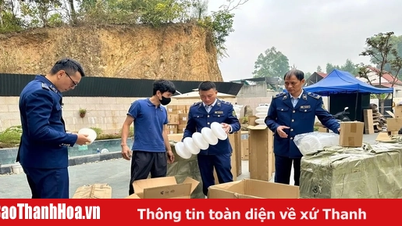



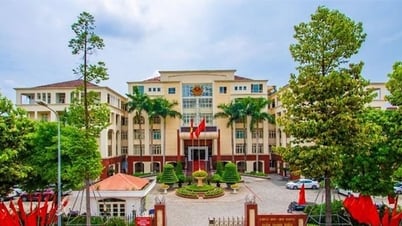



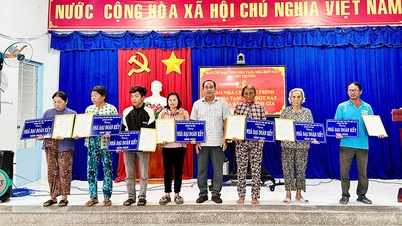









![[VIDEO] - Enhancing the value of Quang Nam OCOP products through trade connections](https://vphoto.vietnam.vn/thumb/402x226/vietnam/resource/IMAGE/2025/5/17/5be5b5fff1f14914986fad159097a677)
Comment (0)